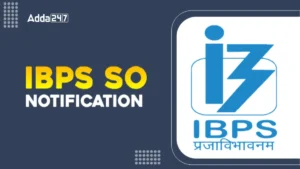Directions (1-5): Answer the following questions after rearranging the following sentences into a coherent paragraph and identify the sentence that doesn’t fit into the context of the paragraph.
(A)As far as fielding candidates with criminal antecedents is concerned this judgment goes well beyond the Court’s earlier orders of 2002 and 2003.
(B)Voters now often enough tend to demand money and freebies.
(C)By virtue of this order, the Court has also shifted part of the onus on political parties.
(D)The order made it obligatory for all candidates to provide self-sworn affidavits of criminal cases pending against them in any court of law.
(E)It would no longer be sufficient to cite “winnability” as the criterion.
(F)The court has ruled that they must do much more to publicise the criminal antecedents of candidates that they have selected to contest elections.
(G)Supreme Court judgment marks an important and possibly far-reaching step towards reining in the political establishment.
(H)SC cited figures of the alarming increase in the number of such persons selected as candidates across the political spectrum.
Q1. Considering statement (G) as the first sentence of the rearranged paragraph, then which among the following fails to become the part of the coherent paragraph?
(a) A
(b) B
(c) D
(d) F
(e) E
Q2. Considering statement (G) as the first sentence of the rearranged paragraph, then which one among the following will be the PENULTIMATE sentence?
(a) It would no longer be sufficient to cite “winnability” as the criterion.
(b) As far as fielding candidates with criminal antecedents is concerned this judgment goes well beyond the Court’s earlier orders of 2002 and 2003.
(c) The court has ruled that they must do much more to publicise the criminal antecedents of candidates that they have selected to contest elections.
(d) The order made it obligatory for all candidates to provide self-sworn affidavits of criminal cases pending against them in any court of law.
(e) None of these
Q3. Among the following pairs which one of them is formed with two consecutive statements after the rearrangement?
(a) A-C
(b) G-H
(c) F-E
(d) A-H
(e) F-G
Q4. Considering statement (G) as the first sentence of the rearranged paragraph, identify the correct sequence of the sentences to form a coherent paragraph (excluding the incoherent one).
(a) GCFHAED
(b) GDACEFH
(c) GADEFHC
(d) GADCFEH
(e) None of the above
Q5. Considering statement (G) as the first sentence of the rearranged paragraph, which of the following statement should be FOURTH sentence after the rearrangement? (excluding the incoherent sentence)
(a) A
(b) F
(c) D
(d) G
(e) C
Directions (6-12): Read the passage given below and answer the questions based on the information provided in the passage. Certain words have been highlighted to aid in answering the questions.
The idea of removing the taint of criminality from electoral politics has been engaging the country for decades. Yet, whatever progress made in this regard has been through the initiative of the Supreme Court and the Election Commission. Political parties which ought to be cleansing the system with legislation and internal organisational reforms have done precious little, and their reluctance to avoid fielding those with criminal antecedents is quite obvious. The Court, in September 2018, sought to enforce greater disclosure norms about electoral candidates. On noting the “alarming increase” of those with a criminal background in the last four general elections, the top court has now come up with an additional requirement while hearing a contempt of court petition. Now, parties have been asked to explain candidate choice and why those with criminal cases pending against them were preferred over those with no such record. The Court has asked national and regional parties to disclose the reason for their selection “with reference to qualifications, achievements and merit of the candidates concerned”, and barred them from merely citing “winnability” as a reason. In addition to full disclosure of the cases pending against them on their official websites and social media accounts, the parties are also required to publish these details in a local regional language paper and a national newspaper. This is a forward movement from the present situation in which the burden of disclosure is on candidates through mandatory affidavits filed along with their nomination papers.
The latest order is in line with a series of judgments aimed at preserving the purity of the election process: directions to ensure the asset disclosure and criminal records of candidates, the incorporation of the ‘none of the above’ option in the voting machine, and the invalidation of a clause that protected sitting legislators from immediate disqualification after conviction. In addition, the Court has directed the establishment of special courts in all States for the quick disposal of cases involving elected representatives. However, it must be underscored that de-criminalization of politics cannot be achieved by judicial fiat alone. The political class has to respond to the challenge. Parties would probably justify their choice of candidates by pointing out that the law now bars only those convicted and not those facing charges, however serious they may be. Besides, they are apt to dismiss all pending cases as “politically motivated”. A legislative option is to amend the law to bar from contest those against whom charges have been framed. A more meaningful option would be for parties to refrain from giving ticket to such candidates. Beyond this debate, a larger question looms: what good will more information on the background of candidates do, if voters back a particular leader or party____________________________________(A)?
Q6.What step(s) can be taken by the Indian legislators to prevent criminals from entering politics?
(a) Revamp laws to prevent those from contesting against whom criminal charges are present.
(b) Arrange protests in the Lok Sabha to show anger against criminals who have entered in politics.
(c) No acknowledgement regarding being a state or national party to be given if it has a member with criminal background.
(d)(a) and (c)
(e)None of the above
Q7.What can be considered as loopholes that can be exploited by political parties to justify their choice of contenders?
(a) Rationalization of choice by citing that only convicted people are barred
(b) Giving accusation on the party candidate a political colour
(c) Immunity against legal action against a party in government
(d) (a) and (b)
(e) None of the above
Q8. What criterion has been added recently by the Supreme Court to restrict parties from indulging criminals in politics?
(a) Demanded a clarification regarding the choice of candidate and why a candidate with no criminal being chosen if a criminal candidate has occupied the place.
(b) Investigation by the Superintendent of Police on all candidates chosen by the party
(c) The criminal candidate has to sign a bond of five lakh rupees to contest elections.
(d) (a) and (b)
(e) All of the above
Q9. Which of the following statements are true with respect to the passage given?
(a) Full disclosure of properties if net worth of candidate contesting is above 500 crores.
(b) Establishment of Special courts in economically viable states for quick disposal of cases
(c) Legislators in power still are protected against immediate disqualification after conviction.
(d) The number of candidates with criminals has drastically reduced in the past few years.
(e) None of the above
Q10.Which of the following sentences can be used to fill the blank (A) in the given passage?
(a) without reference to the record of the candidates fielded
(b) in order to cause ruckus on the streets
(c) to buy renewable energy sources.
(d) to work on economic policies
(e) None of the above
Q11. Which of the following word is similar to antecedents as mentioned in the passage given?
(a) predecessor
(b) premonition
(c) opulent
(d) diabolical
(e) None of the above
Q12. Which of the following word is opposite to disclosure as mentioned in the passage given?
(a) Publish
(b)Released
(c) Concealment
(d) Uncover
(e) Leaking
Directions (13-15): There are two different sentences with a blank space in each question. Choose the word from the given options which fits into both the blanks appropriately adding a proper and logical meaning to the sentences.
Q13.
(I) There is a __________________ of ink on the paper.
(II) Police atrocities and unleashing such savagery at the voices of dissent and protests are a _____________ not only on democracy but also on humanity.
(a) Authoritative
(b) Imperfect
(c) Blot
(d) Ethereal
(e) Soothe
Q14.
(I) Celebrities endorsing products are set to get relief from the _________________ provisions of the Consumer Protection Act
(II) HP announced its commitment to driving more __________________ industry standards for printer security
(a) Stringent
(b) Respectable
(c) Pathetic
(d) Beggarly
(e) Clarify
Q15.
(I) Media went to find out whether or not the protesters are finally willing to ______________ and compromise.
(II) Many Japanese think they can do nothing to persuade the Chinese and Koreans to _________________.
(a) Mutual
(b) Enlarge
(c) Latency
(d) Relent
(e) Equable
Solutions
S1. Ans. (b)
Sol. The correct sequence of the given sentences is GA DCFEH.
(G)Supreme Court judgment marks an important and possibly far-reaching step towards reining in the political establishment.
(A)As far as fielding candidates with criminal antecedents is concerned this judgment goes well beyond the Court’s earlier orders of 2002 and 2003.
(D)The order made it obligatory for all candidates to provide self-sworn affidavits of criminal cases pending against them in any court of law.
(C)By virtue of this order, the Court has also shifted part of the onus on political parties.
(F)The court has ruled that they must do much more to publicise the criminal antecedents of candidates that they have selected to contest elections.
(E)It would no longer be sufficient to cite “winnability” as the criterion.
(H)SC cited figures of the alarming increase in the number of such persons selected as candidates across the political spectrum.
Hence, option (b) is the right answer choice.
S2. Ans. (a)
Sol. The correct sequence of the given sentences is GADCFEH.
(G)Supreme Court judgment marks an important and possibly far-reaching step towards reining in the political establishment.
(A)As far as fielding candidates with criminal antecedents is concerned this judgment goes well beyond the Court’s earlier orders of 2002 and 2003.
(D)The order made it obligatory for all candidates to provide self-sworn affidavits of criminal cases pending against them in any court of law.
(C)By virtue of this order, the Court has also shifted part of the onus on political parties.
(F)The court has ruled that they must do much more to publicise the criminal antecedents of candidates that they have selected to contest elections.
(E)It would no longer be sufficient to cite “winnability” as the criterion.
(H)SC cited figures of the alarming increase in the number of such persons selected as candidates across the political spectrum.
Hence, option (a) is the right answer choice.
S3. Ans. (c)
Sol. The correct sequence of the given sentences is GADCFEH.
(G)Supreme Court judgment marks an important and possibly far-reaching step towards reining in the political establishment.
(A)As far as fielding candidates with criminal antecedents is concerned this judgment goes well beyond the Court’s earlier orders of 2002 and 2003.
(D)The order made it obligatory for all candidates to provide self-sworn affidavits of criminal cases pending against them in any court of law.
(C)By virtue of this order, the Court has also shifted part of the onus on political parties.
(F)The court has ruled that they must do much more to publicise the criminal antecedents of candidates that they have selected to contest elections.
(E)It would no longer be sufficient to cite “winnability” as the criterion.
(H)SC cited figures of the alarming increase in the number of such persons selected as candidates across the political spectrum.
Hence, option (c) is the right answer choice.
S4. Ans. (d)
Sol. The correct sequence of the given sentences is GADCFEH.
(G)Supreme Court judgment marks an important and possibly far-reaching step towards reining in the political establishment.
(A)As far as fielding candidates with criminal antecedents is concerned this judgment goes well beyond the Court’s earlier orders of 2002 and 2003.
(D)The order made it obligatory for all candidates to provide self-sworn affidavits of criminal cases pending against them in any court of law.
(C)By virtue of this order, the Court has also shifted part of the onus on political parties.
(F)The court has ruled that they must do much more to publicise the criminal antecedents of candidates that they have selected to contest elections.
(E)It would no longer be sufficient to cite “winnability” as the criterion.
(H)SC cited figures of the alarming increase in the number of such persons selected as candidates across the political spectrum.
Hence, option (d) is the right answer choice.
S5. Ans. (e)
Sol. The correct sequence of the given sentences is GADCFEH.
(G)Supreme Court judgment marks an important and possibly far-reaching step towards reining in the political establishment.
(A)As far as fielding candidates with criminal antecedents is concerned this judgment goes well beyond the Court’s earlier orders of 2002 and 2003.
(D)The order made it obligatory for all candidates to provide self-sworn affidavits of criminal cases pending against them in any court of law.
(C)By virtue of this order, the Court has also shifted part of the onus on political parties.
(F)The court has ruled that they must do much more to publicise the criminal antecedents of candidates that they have selected to contest elections.
(E)It would no longer be sufficient to cite “winnability” as the criterion.
(H)SC cited figures of the alarming increase in the number of such persons selected as candidates across the political spectrum.
Hence, option (e) is the right answer choice.
S6. Ans. (a)
Sol. Reading the second paragraph of the passage it can be deduced that the correct answer is option(a).
The relevant sentences of the mentioned sentences have been quoted below:
“A legislative option is to amend the law to bar from contest those against whom charges have been framed. A more meaningful option would be for parties to refrain from giving ticket to such candidates.”
S7. Ans. (d)
Sol. Reading the second paragraph of the passage it can be deduced that the correct answer is option (d). The sentences of the passage which substantiate this are given below:
“The political class has to respond to the challenge. Parties would probably justify their choice of candidates by pointing out that the law now bars only those convicted and not those facing charges, however serious they may be. Besides, they are apt to dismiss all pending cases as “politically motivated”.
S8. Ans. (a)
Sol. Reading the second paragraph of the passage it can be deduced that the correct answer is option(a). The relevant sentences of the mentioned sentences have been quoted below:
“The Court, in September 2018, sought to enforce greater disclosure norms about electoral candidates. On noting the “alarming increase” of those with a criminal background in the last four general elections, the top court has now come up with an additional requirement while hearing a contempt of court petition. Now, parties have been asked to explain candidate choice and why those with criminal cases pending against them were preferred over those with no such record.”
S9. Ans. (e)
Sol. Reading the passage carefully we can see that none of the sentences given above are factually correct. Hence the correct answer will be option (e).
S10. Ans (a)
Sol. The given passage talks about the recent judicial interventions taken by our top court to prevent criminals from getting into politics and elaborates further on the need for legislative steps to be taken for some concrete change to take place. Taking a hint from the sentence itself which contains the blank, we can conclude that the correct answer will be option (a).
S11. Ans. (a)
Sol. Among the given words, ‘predecessor’ is the synonym of ‘antecedent’. Hence, option (a) is the most suitable answer choice.
Progressive: go or move back or further away from a previous position.
Recede: go or move back or further away from a previous position.
S12. Ans. (c)
Sol. Among the given words, Concealment is antonym of ‘Disclosure’. Hence, option (c) is the right answer choice. Disclosure means the action of making new or secret information known.
S13. Ans. (c)
Sol. Blot means Mark or stain something. Smudge, Smear, Spot, Blotch, Dot, Mark, Speckle. Blot fits into both the blanks appropriately adding a proper and logical meaning to the sentences. Hence, option (c) is the right answer choice.
S14. Ans. (a)
Sol. Stringent means Strict, precise, and exacting. Stringent fits into both the blanks appropriately adding a proper and logical meaning to the sentences. Hence, option (a) is the right answer choice.
S15. Ans. (d)
Sol. Relent means abandon or mitigate a severe or harsh attitude, especially by finally yielding to a request or Ease off, Slacken, Let up, Ease, ease up. Relent fits into both the blanks appropriately adding a proper and logical meaning to the sentences. Hence, option (d) is the right answer choice.





 IBPS PO Recruitment 2025 Out: IBPS PO के...
IBPS PO Recruitment 2025 Out: IBPS PO के...
 IBPS SO 2025: भर्ती नोटिफिकेशन जारी, यहा...
IBPS SO 2025: भर्ती नोटिफिकेशन जारी, यहा...
 IBPS PO Cut Off 2025 Out: IBPS PO कट ऑफ ...
IBPS PO Cut Off 2025 Out: IBPS PO कट ऑफ ...

